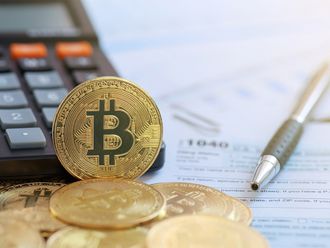It makes every sense for officials of the Gulf Cooperation Council (GCC) to explore fresh ways every now and then in order to strengthen the group's position worldwide in ever-changing socio-economic and socio-political landscapes.
Last week, GCC foreign ministers met in Manama to discuss a Bahraini roadmap for the group, which amongst others calls for economic cooperation with regional economic blocs and joint action on human rights.
Bahrain first offered the roadmap during the GCC summit in Kuwait in late 2009, and ostensibly used the first half of 2010 to explore some key proposals.
For example, Bahrain Foreign Minister Shaikh Khalid Bin Ahmad Bin Mohammad Al Khalifa spent a considerable amount of time over the last few weeks meeting with officials of the Association of South-East Nations (Asean).
It emerged from the Manama meeting on June 22 that strengthening economic ties of the six-nation GCC with the 10-nation Asean is a key component of Bahrain's roadmap.
Reinforcing economic cooperation with Asean falls in line with the newly-founded drive in the GCC to reach out to diverse economic blocs.
Earlier this year the GCC signed a memorandum of understanding on commercial and economic cooperation with the 19-member Common Market for Eastern and Southern Africa (Comesa), the first with an African grouping.
Still, in 2009 the GCC signed a free trade agreement (FTA) with the European Free Trade Association (EFTA), the first such deal with a regional bloc.
The EFTA comprises Switzerland, Norway, Iceland and Liechtenstein.
Worth the effort
Reaching out to Asean neatly fits the GCC's efforts for a spiralling presence in South-east Asia at large. To be sure, the GCC's first deal with any nation was signed in late 2008 with Asean-member Singapore.
Undoubtedly, GCC advances with Asean, EFTA and Comesa partly make up for the lack of progress with the European Union.
In an abrupt decision in late 2008, the GCC's General Secretariat suspended talks with the EU to signal its pleasure with derailed negations.
The decision was designed to apply pressure on the EU to modify its conditions prior to signing a deal with the GCC.
At the moment, EU countries insist on addressing issues related to human rights and democracy as a precondition to signing a trade accord with the GCC states. Hence, addressing the human rights issue in the GCC as suggested in the Bahrain roadmap could eventually facilitate securing an FTA with the EU.
For their part, the GCC states demand removal of customs charges on aluminium and petrochemical products. The EU imposes a six per cent customs duty on imports of aluminium from the GCC.
However, the EU remains weary of governmental support such as under-priced gas to GCC producers, a matter that gives them an unfair advantage against their European counterparts, notably the countries joining since 2004.
Some 12 countries joined the EU in a span of five years including Romania, Poland, Hungary and the Czech Republic.
It is to the GCC's advantage to conclude a deal with the EU, in turn the largest trading partner for regional countries. Yet it is not clear to what extent, if any, economic hardships in the EU would serve the purpose of signing an FTA with the GCC. Reference is made to complications associated with debt problems of Greece and increasingly other EU members as well such as Spain and Portugal.
It is probably fair to assume that the EU is in need of reinforcing its trading positions globally on the back of the falling euro, and thus export opportunities. Clearly, Bahrain is exerting such efforts ahead of assuming the rotating chair of GCC secretary-general.
Recently, Bahrain named public security chief Abdul Latif Bin Rashid Al Zayani to the post, currently occupied by Qatari Abdul Rahman Al Attiyah.
The writer is a Member of Parliament in Bahrain.












